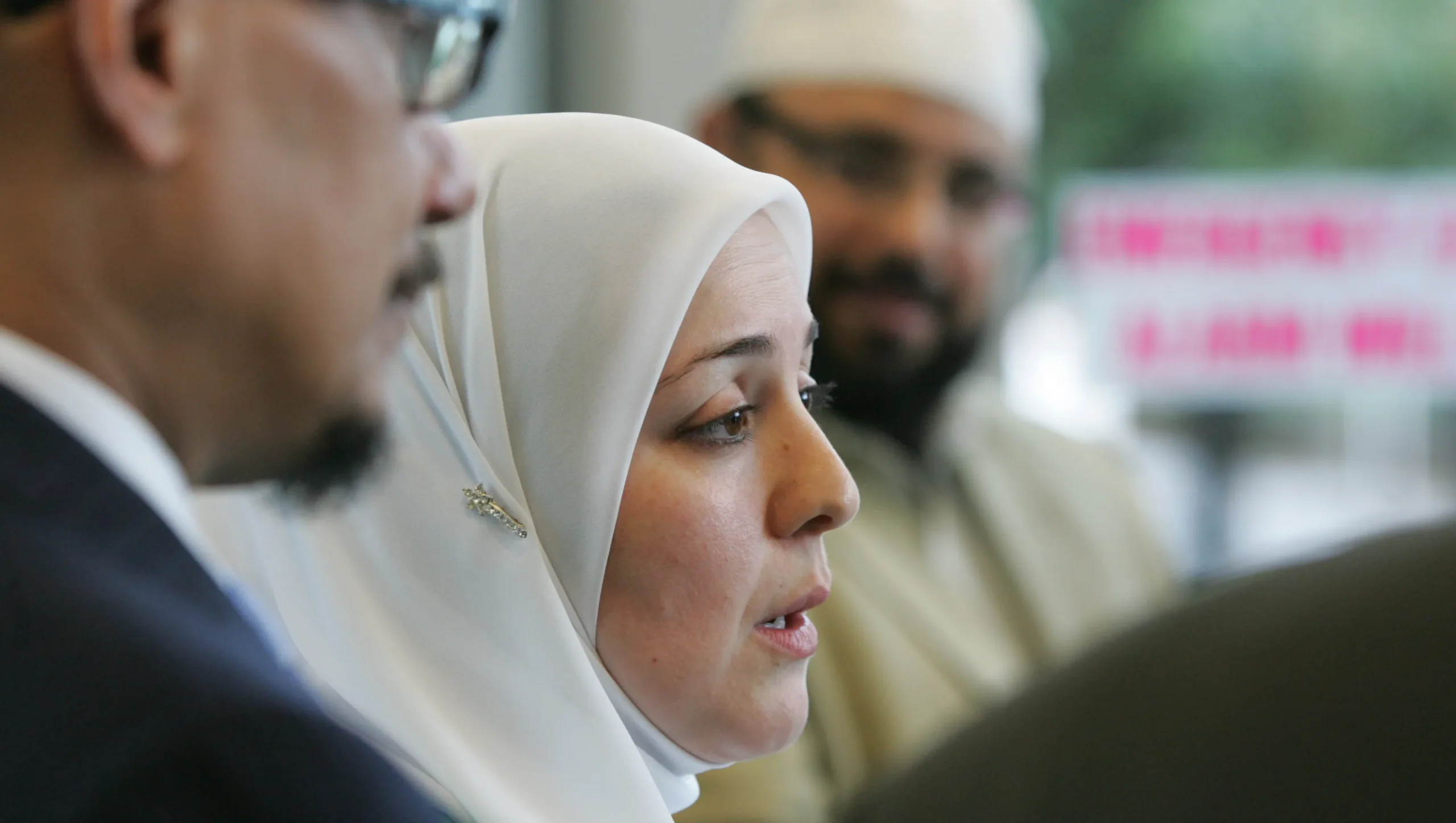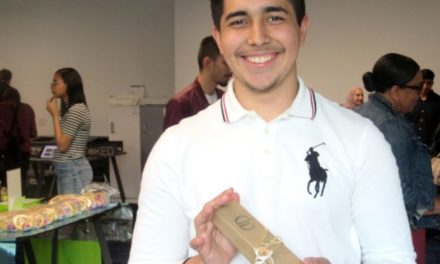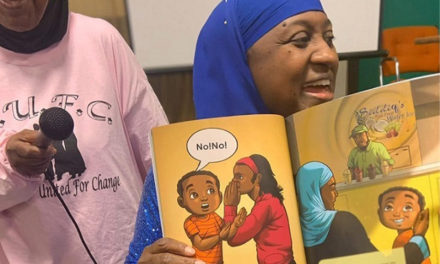Nadia Kahf, an immigration attorney in Haledon and chairwoman of the New Jersey chapter of the Council on American-Islamic Relations, welcomed news of the ruling against President Trump’s travel ban. (File Photo)
Nadia Kahf, a family law attorney from Wayne, will become the next Muslim woman to serve as a state Superior Court judge in New Jersey.
The New Jersey Senate voted to appoint Kahf and a dozen other people as judges on Monday. Kahf, who will be the first judge to wear a hijab on the bench, will serve in Passaic County.
Gov. Phil Murphy nominated Kahf a year ago as part of a slate of 15 nominees. Muslim leaders who supported her nomination raised concerns when the process appeared to stall while others advanced.
In May, 90 community leaders, including mayors, council members, school board members and leaders of the New Jersey Muslim Lawyers Association, signed a letter urging state Sen. Kristin Corrado to act to advance the nomination. More than 700 people also signed an online petition in support of Kahf.
As the lawmaker in Kahf’s home district, Corrado had “senatorial courtesy,” an unwritten tradition that allows a lawmaker representing the hometown of a nominee to stall or block their consideration. It’s not unheard of for legislators to delay the process while seeking concessions or political benefits.
Supporters say Kahf will bring a wealth of experience and needed representation to the bench.
At her law practice in Haledon, Kahf specializes in family law and immigration. Since 2003, she has sat on the board of the New Jersey chapter of the Council on American-Islamic Relations, a Muslim civil rights organization where she now serves as chairwoman. She is also the legal adviser to Wafa House, a nonprofit domestic violence and social services agency based in Clifton, and chairwoman of the Islamic Center of Passaic County.
Two other Muslim women, Sharifa Salaam and Kalimah Ahmad, serve as Superior Court judges in Essex and Hudson counties, respectively.
There are about 460 Superior Court judges in the state’s 21 counties who hear criminal, civil and family law cases. They serve initial terms of seven years. Kahf’s appointment comes as the state struggles with vacancies in the Superior Court.














